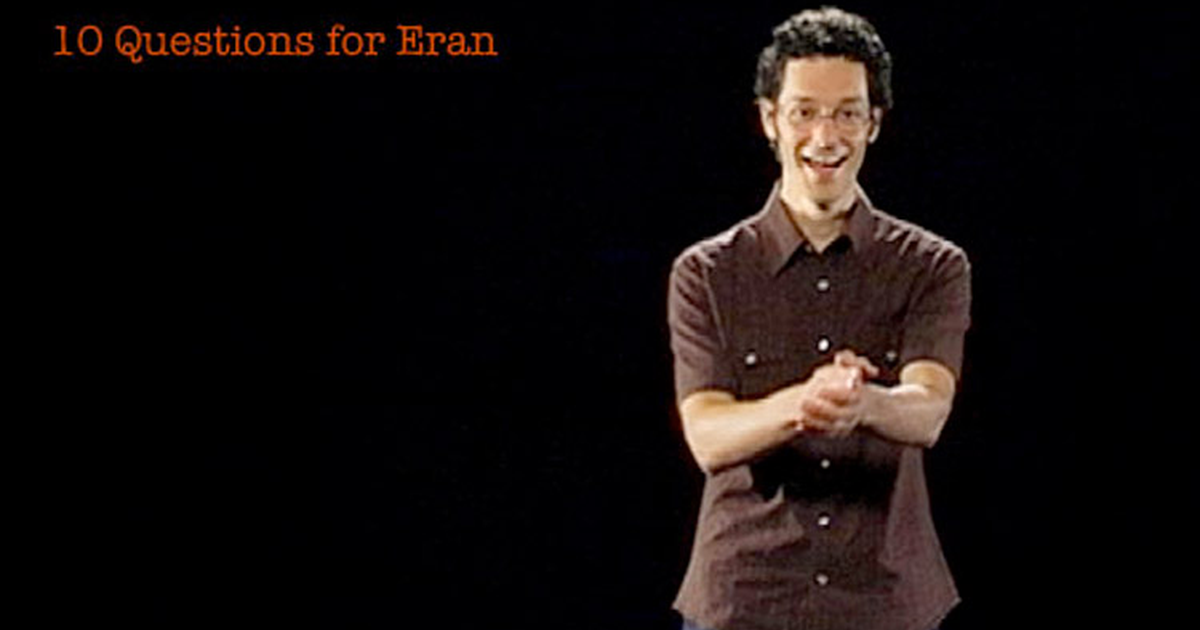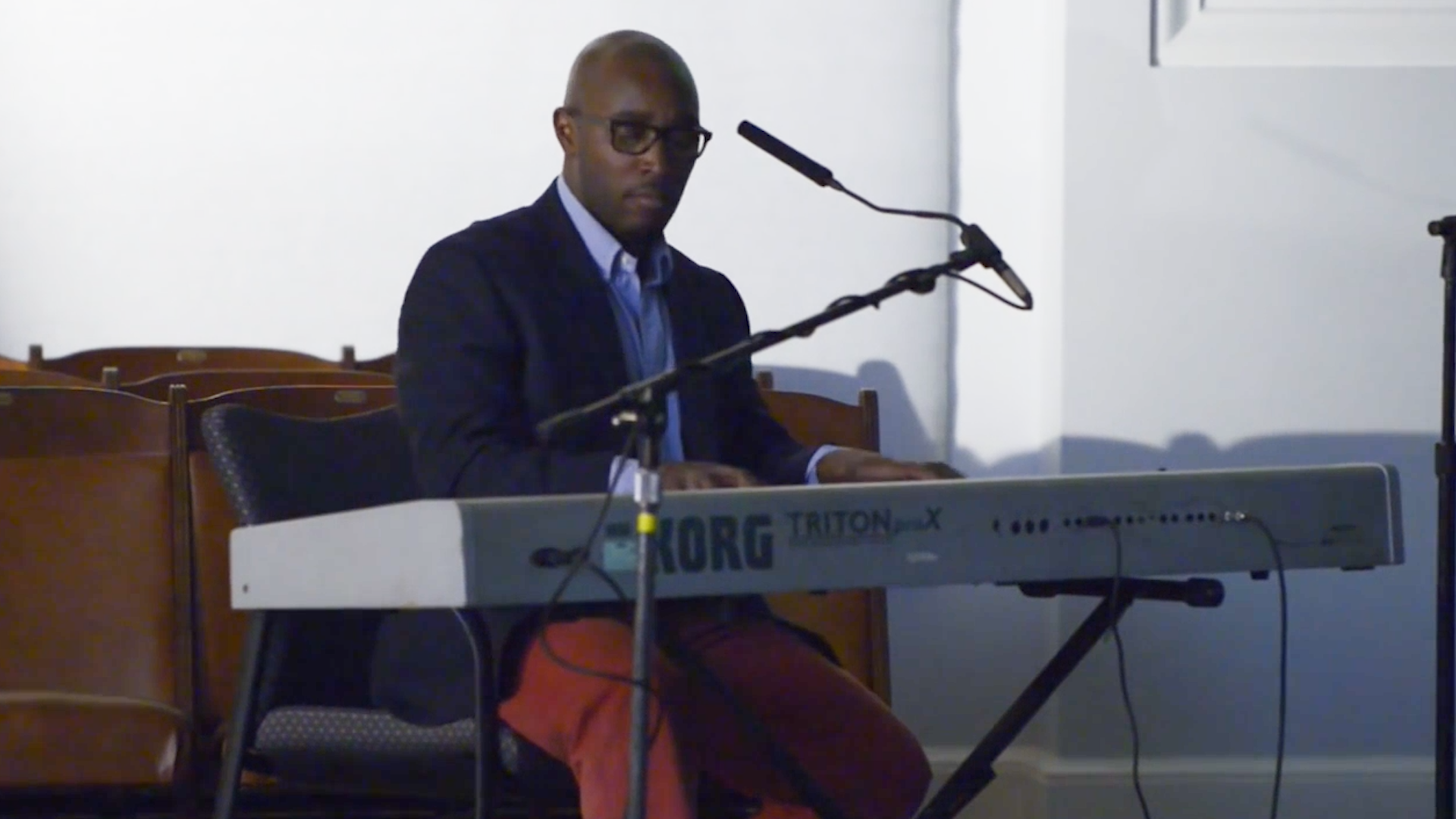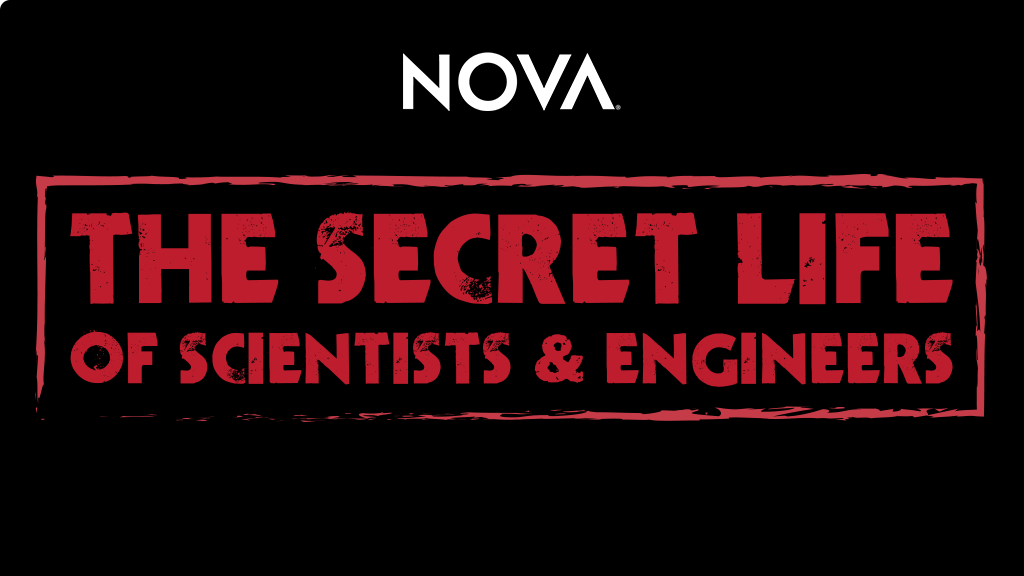Eran Egozy
Eran is an electrical engineer and computer scientist. He is Chief Technical Officer and Co-Founder of the video game company Harmonix Music.

Meet musician, engineer, computer scientist, and game developer Eran Egozy in these videos, blog posts, and interviews from NOVA's "The Secret Life of Scientists & Engineers." Have you played "Rock Band" or "Guitar Hero"? — Eran created them. He explains how those games were imagined, and how he aims to help everyone experience the euphoric feeling of playing music.
“It’s about everyone playing together.”
Science:
Eran Egozy is the game developer who created the gazillion-selling games “Guitar Hero” and “Rock Band.”
Secret:
A clarinetist since the age of twelve, Eran now plays with the classical chamber music group Radius Ensemble. He also spends the first hour of every work day playing the clarinet.
Music for the Masses
Eran Egozy uses ones and zeros to bring music-making to everyone.
Secret: Clarinetist
Eran Egozy becomes really good at the clarinet and connects deeply with other musicians.
30 Second Science with Eran Egozy
We give Eran Egozy 30 seconds to describe his science and he does it in 27.
10 Questions for Eran Egozy
We ask Eran Egozy 10 questions and also get a look at his "Rock Band" avatar.
With a little help from my friends
So how do you sound when you play Eran Egozy’s game “Rock Band”? Or for that matter, when you pour your soul into a Lady Gaga song in the shower? Or when you sing along with Coldplay during the long drive home from work? Does your singing need a little help? If so, you’ve got company.
Check out this Nova scienceNOW piece on the software, Auto-Tune . It’s used by many professional singers to make them sound like they actually know how to sing (and it could probably help you win at “Rock Band,” too).
The origin of a scientist
We generally start our “Secret Life” interviews by asking the scientists about their childhoods. And we almost always learn that their science is a variation on something they loved to do as a child. And so it is with Eran Egozy. Many years before “Guitar Hero” and “Rock Band,” Eran’s parents bought him one of the early Apple II computers (yes, it was a long time ago – the Apple II was also used to invent the wheel and to start the first man-made fires). Eran, 15 years old and already a serious musician, wanted to use the Apple II to make music, but—
“It wasn’t going to play music by itself—I had to actually input the data for whatever music I wanted. So, of course, what’s the piece that I have to enter in the computer? It’s Beethoven’s 9th Symphony. So I went to the library and got a score of Beethoven’s 9th Symphony, all the parts—the violins, the woodwinds, the brass, everything—and I would start typing in all those notes into my Apple II. But this is not like it’s done today, where you have a mouse and you can drag notes onto the screen, or you have a keyboard and you can play it—I actually had to translate every note into some kind of machine code. So I would actually sit there and type all these hexadecimal values into the computer to translate Beethoven’s score into computer-speak. And every day, I would just be able to get a little bit more done—I’d probably be able to only input about ten seconds [of the score] a day [in three to four hours of work]. As I would enter this music, the sounds of Beethoven would waft through the room. Now, of course, it didn’t sound like a real symphony, but it also sounded like nothing else I’d heard at the time, because it was kind of this brand new thing that I was building.”
Eran answers your questions
“Rock Band,” “Guitar Hero,” concert-level clarinetist…. Eran Egozy brings a lot to the table. And answered some of your questions.
Q: Have you ever considered adapting the musical videos games with ‘real’ music notation to use as a music literacy teaching tool?
EE (Eran Egozy): Harmonix games are not overtly about teaching music, so I don’t see us going down an explicit pedagogical route and introducing real music notation. However, we are well aware that our music games have great potential to teach people about music as they are playing. Even though they may focus on getting a high score or conquering the world, they really are learning something about musical lines, rhythms, and how different parts of music are put together. We’ve heard stories of how playing in Rock Band has caused people to start taking guitar and drum lessons, and we love that.
Q: What are your thoughts on the future of music gaming, specifically its expansion into channels of expression?
EE: Music gaming is in a really exciting place right now. Tens of millions of people who have played Rock Band or Guitar Hero have experienced music in a deeper way than by just listening to it. And while this new kind of musical experience is empowering, I do not think it is the final destination. We at Harmonix are constantly thinking about innovation – ways to expand the current music gaming experience to something deeper and more meaningful for more people. That can come from more styles of music, more interfaces, as well as new forms of musical expression. So the short answer is yes. We see the Rock Band platform as both a video game and a way for people to experience and express music more fully.



